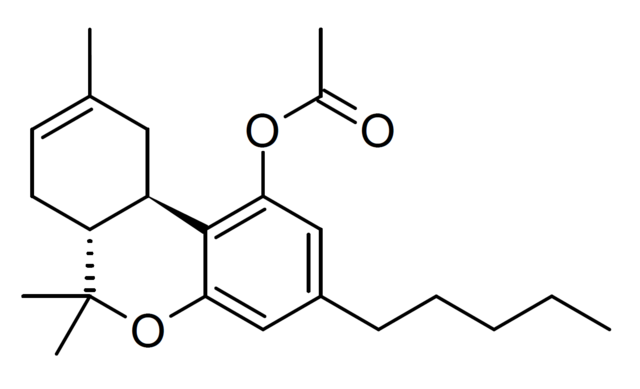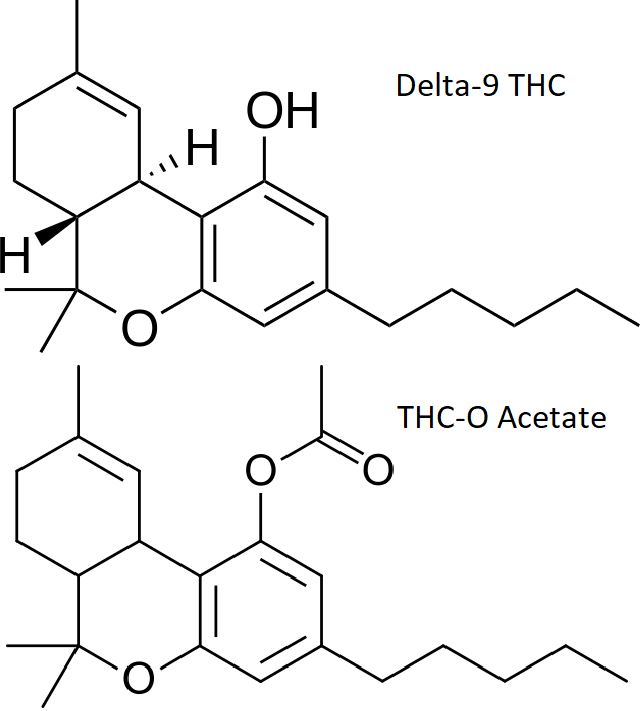
By J Gordon Curtis
In this wonderful world of continually evolving cannabinoids, a new challenger has emerged. THC-O is sweeping the nation and rapidly gaining in popularity. When people start claiming a product is “the psychedelic cannabinoid,” it only makes sense that everyone would want some. As the popularity of THC-O has increased, many are finding excitement in a new cannabinoid.
What is thc-o?
By now, many are already familiar with Delta 8-THC, a legal form of THC. Most consider this federally legal analog to be about ⅔ as potent as its illegal cousin. While many have appreciated the lower potency of Delta 8, some want a stronger intoxication element in their cannabis. This is where THC-O comes in
THC-O (note: THC “oh,” not THC “0,” as in the number) is a form of THC with a higher potency than Delta 8 AND Delta-9-THC. The stated difference in effects is roughly 3 times as potent as Delta-9 THC and 5 times as potent as Delta-8.
THC-O starts with a pure Delta-8 isolate and uses chemical processes to convert it. Delta-8, readers may note, also requires many chemicals in its creation. The process is incredibly involved to cerate this cannabinoid and then remediate the chemicals used to do so.

Molecular Makeup for THC-o
The full name for this cannabinoid is THC-O Acetate and it represents the acetylated form of THC. Unlike Delta 8 or Delta 9 THC, this does not naturally occur in the hemp or marijuana plant. THCOa belongs to a class of chemicals known as a “prodrug.” This means that it is not active on its own and must first convert through metabolism in the liver of the consumer.
As you can see from the pictures above, the molecules are almost identical. Through the metabolization of the liver, the molecule reverts to the regular THC we’ve all known and loved for many years. In other words, the parts of the molecule that are different wind up going away. The remaining molecule is Delta-9 THC.
We have yet to really understand why the perceived effects are so much higher. Common sense will tell you that it should be exactly the same. Since THCOa turns into D9THC, shouldn’t it just feel like D9THC?
The most likely explanation is that the metabolism of the molecule affects its bioavailability of it. Bioavailability is a term used to describe the ability of a substance to be absorbed by your body.
Is thc-o safe?
Truthfully, nobody could give a confident answer one way or the other to this question. It seems highly likely that there would be no further harm from this than one would expect from Delta-9-THC. Research is still years behind, however. There have been very few studies done on the cannabinoid and science still knows very little about it.
While it is unlikely that there is anything unsafe about the molecule itself, it does require harsh chemicals to create it. In the process of making THC-O, producers expose THC molecules to acetic anhydride. This is an extremely flammable substance and the process of making THC-O has danger associated with it inherently.
The main thing that sets apart safe and unsafe products are these chemicals. Clean products will include extensive reporting to show that they have remediated the chemicals used. Due to the unregulated nature of the product, there’s no requirement to do this, however.
Visit Our Dispensaries
Latest Post

Is Delta-8 Legal In Nashville, TN?
Delta-8 is a hot topic right now, but with so much information out there, it can be hard to know what to believe. That’s why we’re here to help! In this blog post, we’ll cover everything you need to know about Delta-8, from what it is to how it works to where you can buy it.

